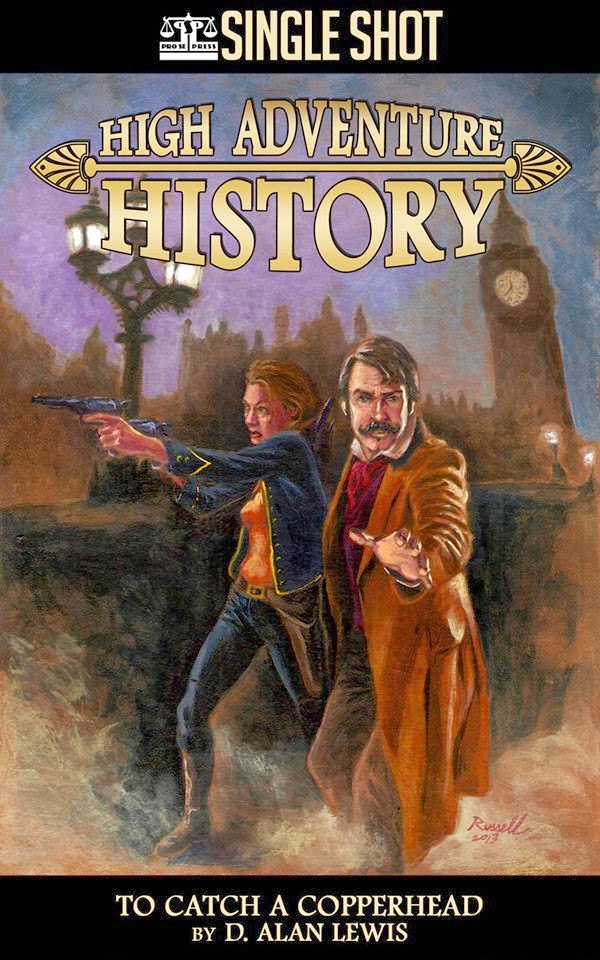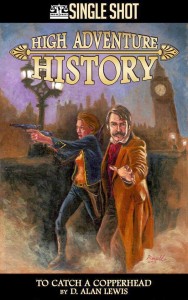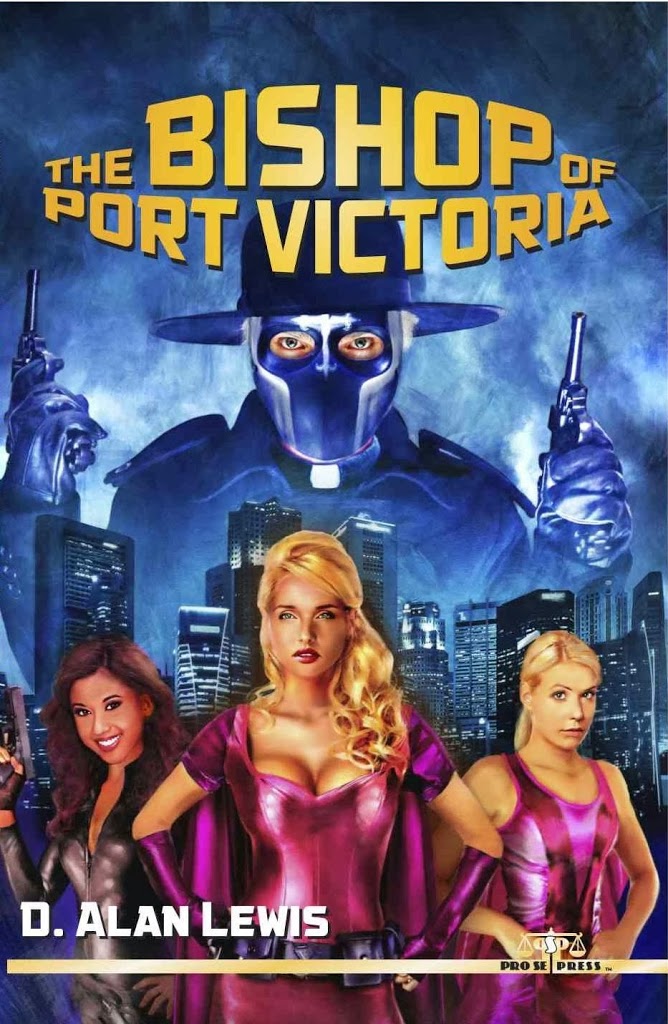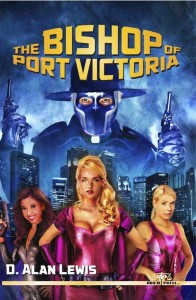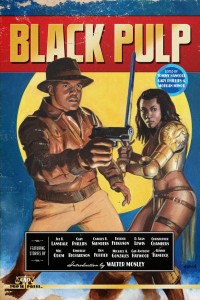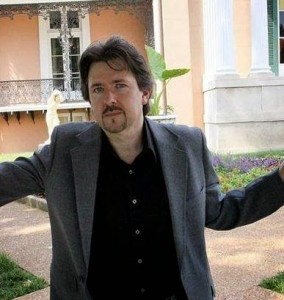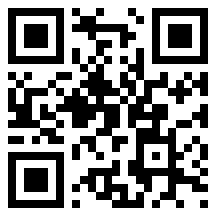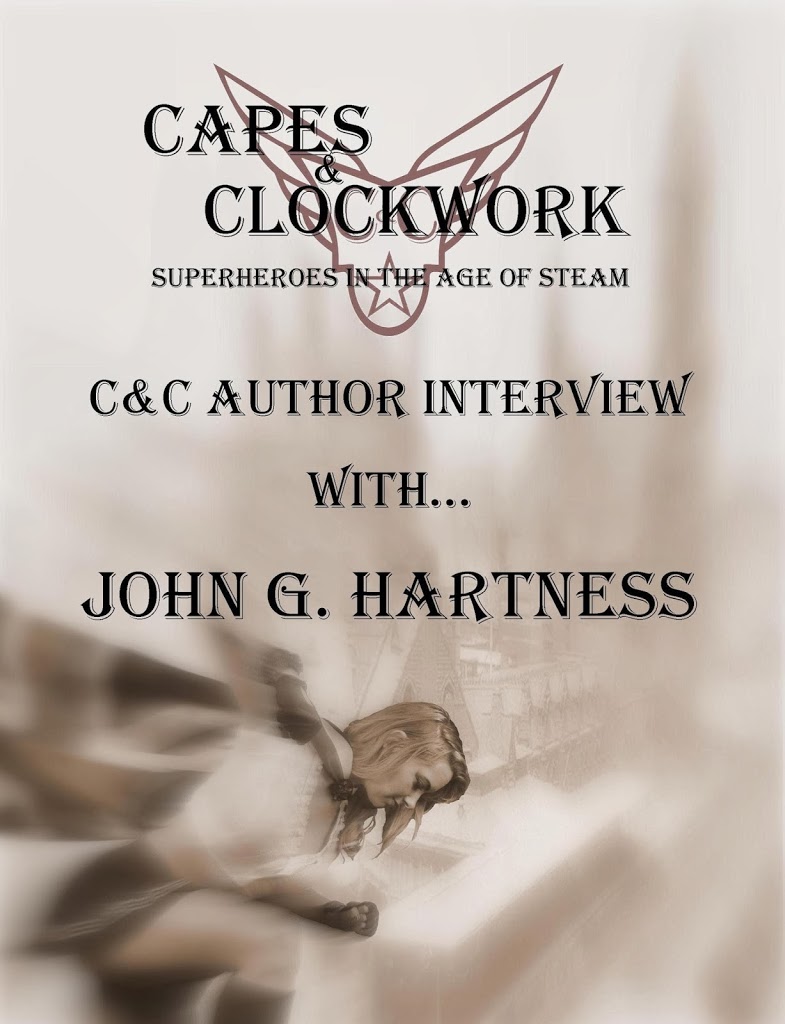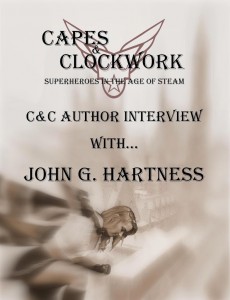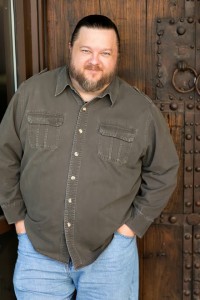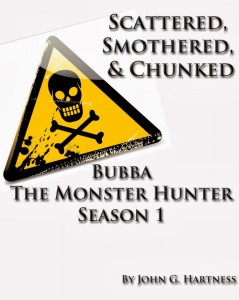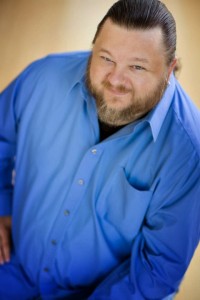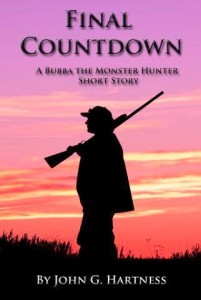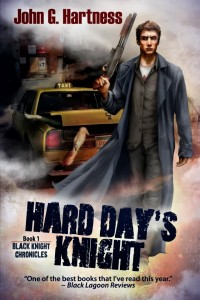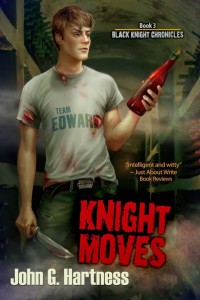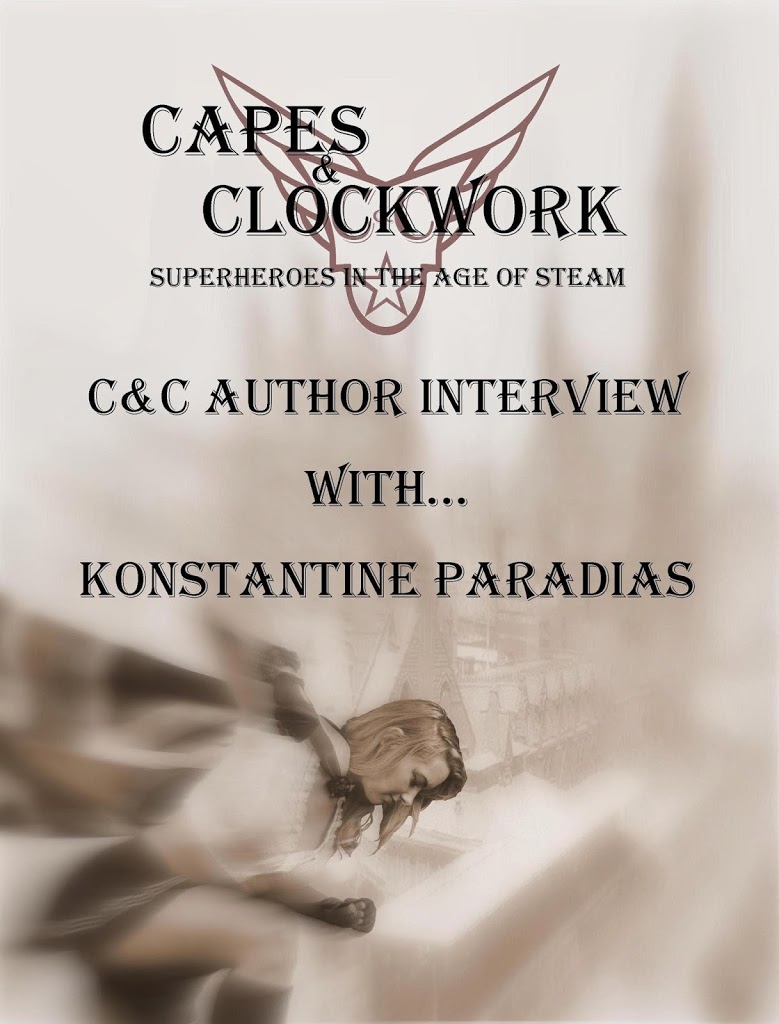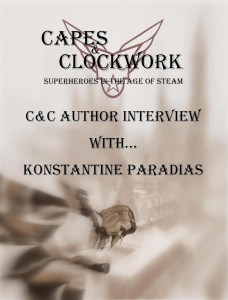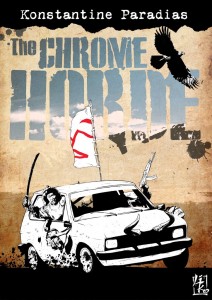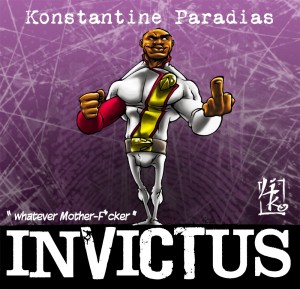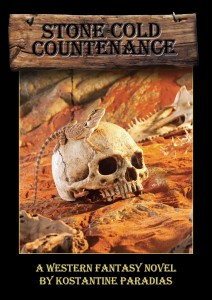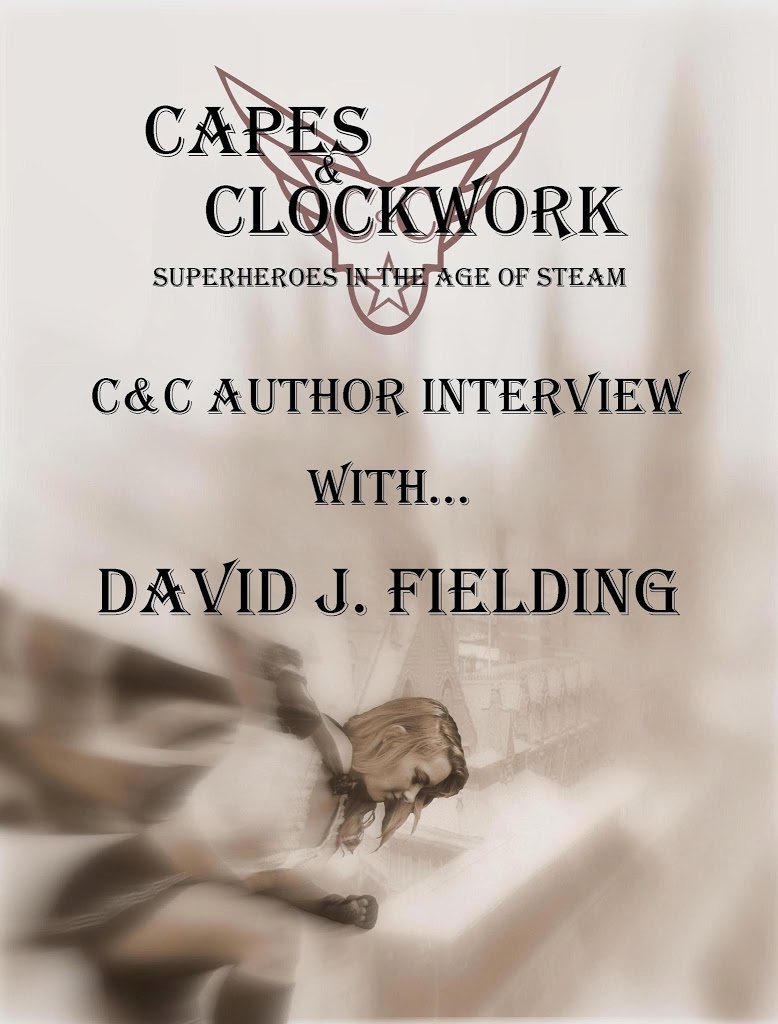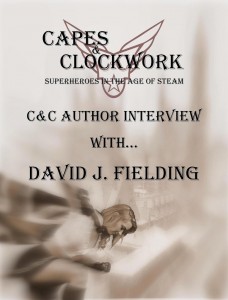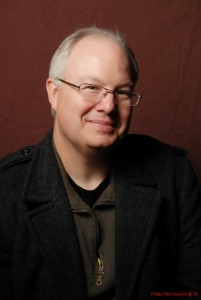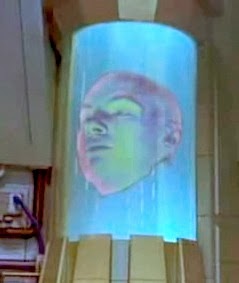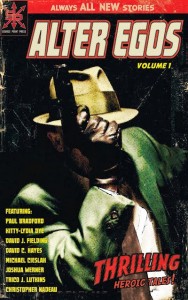Capes & Clockwork author interview with Konstantine Paradias
Capes & Clockwork is an upcoming anthology from Dark Oak Press which fuses the beauty and elegance of steampunk with the action and adventure of the superhero genre. As part of the ‘gearing up’ to the release of ‘Capes & Clockwork: Superheroes in the Age of Steam’, I’ll be interviewing some of the great authors that contributed.
And now on the stage, right here for your reading pleasure is…. Konstantine Paradias
Konstantine Paradias is a Greek science fiction and fantasy writer. His short stories in English have been published on OHP’s Petulant Parables Anthology, Breathless Press’ Shifters anthology, EveryDayFiction.com, Schlock! Magazine, Static Movement’s Behind Closed Doors and Long Pig anthologies. His first fantasy ebook, Stone Cold Countenance, has been published by bibliocracy. com.
At what age did you start writing?
If I’m not mistaken, I started writing when I was 14 (though I might have made a few attempts when I was 12, when I and my brother were trying to come up with a cartoon plot that we were going to call THE ADVENTURES OF KITTENCHILDE, THE RICHEST KITTEN EVER). It had happened a few weeks after I had first read through War Of The Worlds, which was the very first, honest-to-God science fiction book I’d ever read and it had blown my mind.
My first attempt at writing a book was 200,00 words long, in terrible English (as I was still learning the language) and it had begun as fanfiction, then derailed itself somewhere in the 350-page mark. I gave up on writing for 2 years (with the occasional short-if terrible-fantasy story written to pass the time). It wasn’t until I was 17, when I earnestly tried my hand at actually writing an original short story that I could call my own. It was supposed to have been the first book in a fantasy-parody series, titled THE CHRONICLES OF CHOPPINGSTAN, starring every fantasy stereotype ever, including (but not limited to) a Drizzt Do’Urden pastiche that I called The Unwashed Ranger.
While I did begin writing the book in Greek, I unfortunately never finished it. It was about 3 years later, when I was 20 years old, that I began to try my hand at writing on a semi-professional level and began working on my first book, STONE COLD COUNTENANCE (a fantasy novel) and a rough version of a science fiction book, which I called HER FRACTAL MAJESTY.
While STONE COLD COUNTENANCE has since been completed and its first 6 chapters are available on my blog, I am still looking for a publisher. As for HER FRACTAL MAJESTY, I guess I am not ready to give it the attention it deserves. It might be because I’m too emotional about this book and I will never think that it will ever be good enough to give it the attention or the lustrous finish I believe it deserves.
How many words do you write per week?
That depends, really. There was a time (before I actually began working on a book) when I would manage to write as much as 6 or 8 thousand words a week every week for about a year and a half, before I began to exhibit symptoms of serious burnout.
It was the time when I still had no managed to publish any of my stories and had found the only remedy to be searching for anthology calls or magazine submissions through Ralan or Submissions Grinder, writing a story for every single call that caught my eye and I could come up with. I’d get the story done in a day (two, tops) and then I’d edit it for another day, before submitting it. Finally, I would also write a blog post, because I wanted to maintain a schedule, while working on a comic book script (details on question 6) AND writing reviews for Bestsciencefictionstories.com.
As you might guess from the previous paragraph, this much writing might be good exercise, but it’s unmoderated and in general, not a good thing. I was pretty much destroyed by the end of the 18th month doing this, so I decided to switch directions and focus on working on my current novel, while spacing out my blog updates.
Now my weekly word output is down to 5000 words, but I’ve broken it down into smaller segments, instead of just exploding all over my keyboard almost every single day. I still don’t take Sundays off, though.
Do you have a routine when you write?
If I’m working on a short story, the routine goes like this:
· Look for anthologies
· Find an anthology with a theme that fits
· Jot down the first thing that comes to mind. If that fails, check what they DON’T want and work borderline on that. Risque moves like that cost absolutely nothing and help you work those thinking muscles.
· Write the story. Show it to a friend who you’ll know he hates it. If they don’t, you’re on the right track.
· Edit the story. Try not to stab your eyes in, because you will feel embarrassed at all your typos and other errors.
· Submit and pray to your God for an acceptance.
· If rejected, shrug and repeat.
If I’m working on a book, my routine goes like this:
· Come up with a story idea.
· Set up a schedule (target word count, personal deadline, a word-per-day output)
· Start writing.
· Realize the folly of your plans and that a 350,000 word count with a 5,000 word-a-day output and a January deadline was a terrible, unrealistic idea in the first place.
· Hate yourself.
· Stop hating yourself and bump it down to a manageable level.
· Find cover artist.
I have found it mostly works…mostly.
Who were your inspirations?
That’s a tough one, mostly because I have no idea where to even begin. H.G. Wells was my very first science fiction writer, but I didn’t REALLY realize I wanted to become a writer more than anything until I stumbled on an old, dog-eared omnibus of Moorcock’s Elric of Melnibone, which blew my mind into a million pieces, amking me wonder what the hell people even saw in lord of the Rings in the first place.
I started writing fantasy, while reading everything from Moorcock I could get my hands on, until a friend of mine gave away his fantasy books (as he was going through a religious phase, don’t ask) and I discovered a tattered copy of Zelazny’s Lord of Light. After reading it until the pages wore down to ink and dead tree pulp, I began trying my hand at space opera, while looking deeper into science fiction’s roots.
A man working at the local bookstore, whom I inquired whether he had heard of any good sf books, passed me a copy of Sirens of Titan which he described as ‘just the thing I need’. Previously unfamiliar with Vonnegut’s majesty, I began reading, finished the book in 10 hours then went back to the store and bought anything else I could find on the shelves.
I was 16. And on the shelf next to the Cat’s Cradle, there was a comic book, misplaced by a customer. It was called Bloodfeud and it starred Spawn, written by Alan Moore. I picked it up, having only heard of Alan Moore by name. After an extended period of paralysis by awesome, I decided I just had to try my hand at writing comics, eventually.
What book do you read over and over the most?
There’s the Sirens of Titan (4 times in a row), Chuck Pallanhiuk’s Choke and Lullaby (4 and 5 times in a row, respectively), Thomas Ditch’s 334 (3 times), Zelazny’s Lord of Light (12 times) and Michael Moorcock’s Stormbringer of the Elric Saga (lost count).
Do you have a dream project that you want to write in the future?
Yes, I do. There’s actually more than a couple of them, but I won’t go into detail because, you know, space. But so far my dream projects include:
· A limited comic book series, titled Rise and Fall, where underdog, z-list superheroes are forced to save the world, when its big-hitters fail it (for a complete outline, go here: http://shapescapes.blogspot.com/2013/02/what-i-think-about-stuff-things-ill-do.html )
· A story cycle, titled THE FUTURE SUCKS, starring destitute, drunken time travelers trading stories about possible realities.
· INVICTUS-THE IRRESPONSIBLE SUPERHUMAN comic book series, starring a superhero who looks like Terry Crews, has an attitude like Hulk Hogan and acts like Homer Simpson, while trying to prove himself as an honest-to-God champion.
· A comic book series, titled POST RAPTURE, starring despicable people in the days before the battle of Armageddon and finally…
· A single episode of Doctor Who. I mean, just one. It doesn’t even have to be important. Like, it turns out it was all just a dream, in the end. O please, BBC, why won’t you read my e-mails?
What genre do you prefer to write? To read?
I personally prefer science fiction, both to write and to read. I prefer to write it, mostly because a man I once knew, wise to the ways of sf (but little else) once told me how ‘Science Fiction is, essentially, socio-political satire’. I think it was those 7 words that changed everything around for me and made me want to find out more about the genre. And the more I looked into it, the more I fell in love with it and its relevance.
I love writing science fiction because it’s the perfect way for me to poke fun or to look at everyday human failings, including my own; but I love to read it, because the masters of the genre (Bradbury and Asimov to Egan and Doctorow) have given me long, thoughtful glimpses into what’s to come.
And even though it scares the pants out of me, I can’t help but being drawn to it.
Do you prefer writing short stories or novels? And why?
I personally like short stories better, mostly because short stories are the telling of events. They can be world-shattering of insignificant, they can be immense historical shifts or mindless, emotionless disasters. But above all, a short story gives you absolute free reign over your narrative, of the kind you cannot achieve in a novel.
A novel is a fiercely structured creation that follows its own rules and controls you at the 30,000 word mark. If you know what you’re doing, you won’t fight it and instead let it take you to all the wonderful places you wrote about and live through the adventures you set up yourself.
But a short story? Now that’s another thing. A short story is more like a car crash, or a freak occurrence. It happens at a distant corner of your mind and exists in and of itself. It is under your complete and utter control and in many ways, it lets you play God. If novels are ecosystems, then short stories are petri dishes that you can chuck into the fire at your whim and watch them burn, before you move on to the next one, like some desensitized evil god.
What are you working on now?
I am currently working on a novel, called the CHROME HORDE. It is the story of a post-apocalyptic world after its fossil fuels have mysteriously disappeared in a single night, leaving human civilization without an alternative and causing it to crash and burn.
Sixteen years later, from the depths of Mongolia, a familiar terror rises from the rubbgle and rides down across the Asiatic interstates, crossing the A353 through China, to Kazkahstan and the West. Cutting a burning swathe of destruction, the resurrected Mongol Horde, with Batu-Khan (the last direct descendant of Genghis) at its head, return to drain the bad blood out of the dying world, to cut at the diseased flesh of it and to leave behind clean, virginal parchment on which the tenets of the new civilization can be written down.
It starts with a sputter, proceeds to a bang and ends…God, I’m not sure, I need to get back to you on that. It keeps pulling all those fast ones one me…
What 3 things do you feel every aspiring writer should know?
THING ONE: There is no such thing as a rockstar writer. You are not going to come up with that one hit single short story or novel that will make you rich and even if you do, this will probably spell your doom. Be prepared to try, to fail, to give up (I’ve given up so much I’ve given up on giving up, to be honest), to have a fit and then go back to your keyboard and keep writing. Come up with a program and follow it. Try to get at least 700 words in every day, or try to get a gig writing (even if it’s gratis) for a website, so you can work on developing your writing muscles.
THING TWO: Get used to rejection. And I mean like, TONS of it. For every 100 stories you write, perhaps 10 will make the cut and be published. Of those 10, perhaps one will actually be bought for real money. That is more than most people get and you should be grateful for it. Cherish those rejection letters that contain even a short explanation on why a story was turned down, because it means the editors gave enough of a damn to squeeze some time into their day to tell you what was wrong with your story. Work your way around that, or apply those bits of advice to your next project.
Rinse in your own tears, repeat.
THING THREE: Don’t just try everything or TRY to get things done. Just get them done and do at least one thing that’s outside your comfort zone. If you work with fantasy, try sf. If you’re into horror, try your hand at erotica. Do one of everything and get it done, no matter how bad you think you’re doing. You don’t know it yet, but you’re getting better at it. And one day, before you know it, you will find yourself using all those wonderful things you’ve learned in your genre of choice and the results will…be…GLORIOUS!
Thanks so much for yout time, Konstantine.
Look for Konstantine Paradias’ story,
Beneath Familiar Suns
in the upcoming
Capes & Clockwork.

